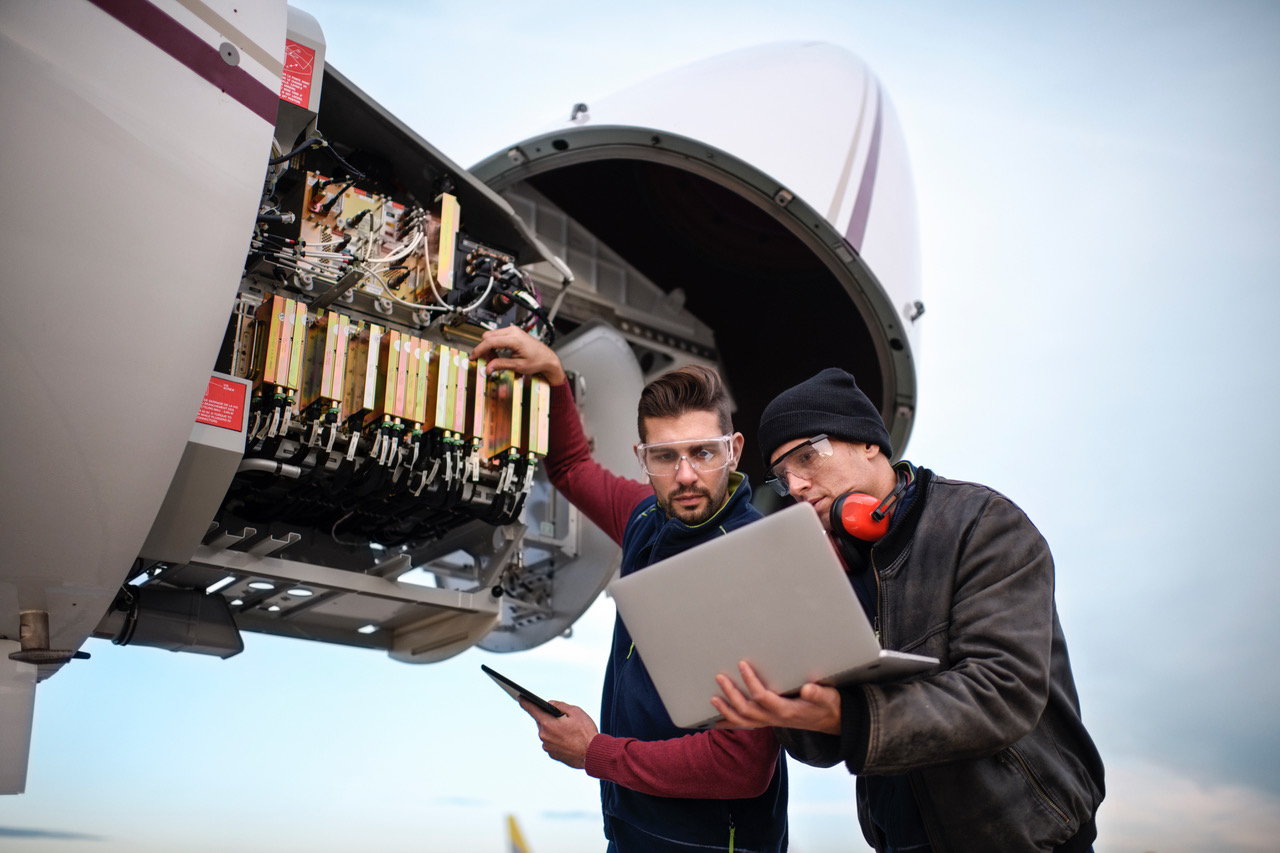Can we base aircraft maintenance on its status instead of on a rigid schedule? Four young researchers from TU Delft won a large European grant to investigate condition-based maintenance.
(Photo: Getty)
The budget is large (6.8 million euros), the researchers are at the start of their careers, and they work with major partners such as KLM, aircraft manufacturer Embraer, UTC Aerospace Systems’ research centre and IT company Atos.
Although condition-based maintenance could save European airlines 700 million euros per year, Dr Bruno Santos, one of the four researchers who wrote the ReMAP proposal, knows that regulations and practice don’t change overnight, especially not in aviation where safety is paramount.
Alternative for schemes
The key concept is condition-based maintenance or CBM. The researchers want to analyse the output of the more than one thousand sensors on board airplanes that gauge the condition of technical systems. This approach could offer an alternative for today’s fixed maintenance schemes based on the number of flight hours, flight cycles or days passed.
Santos says the Advisory Council for Aeronautical Research in Europe (ACARE) supports condition-based management: “ACARE envisions that by 2050, all new aircraft will be designed for condition-based maintenance. By 2035, ACARE already foresees that this CBM philosophy will be accepted as a standard approach to monitor aircraft health and to plan aircraft maintenance. Personally, I am more conservative or realistic than ACARE, but there is no doubt that this is the way to go.”
Reliability test
Santos and his colleagues, Wim Verhagen, Mihaela Mitici and Dimitrios Zarouchas, will start with a dozen non-critical aircraft systems such as the air-conditioning, wheels and brakes, and the secondary generator. Santos explains: “We do not expect to have these systems following CBM at the end of our project. They will be used to test the reliability of the CBM approach for critical systems.”
“By 2022 we will test, validate and verify our results of the diagnostics and prognostics on the systems of two aircraft types in KLM’s fleet. This will be done while respecting the current intervals-based approach. We will be able to test and measure what the impact of using CBM would be. This should be a reference test to contribute to and shape the future of CBM in aviation.”
In their ReMAP (Real-time Condition-based Maintenance for Adaptive Aircraft Maintenance Planning) proposal, the researchers revealed an innovative vision on aircraft maintenance.
- Next to the numerous existing sensors, a network of structural sensors will be developed to help locate scratches or material fatigue in composite materials.
- Machine learning will be introduced to translate sensor data into diagnostics and prognostics of technical systems.
- Decision-support systems will be developed that combine maintenance requirements with available resources and flight plans to come up with a number of maintenance options. At the end of the day, there is still a human planner who makes the decision.
TU Delft leads the ReMAP project that will start with a kick-off event in June 2018, and has a run time of four years. The project is funded as part of the European Horizon 2020 programme. It will result in a white paper for the industry and regulatory agencies, meant as a roadmap for a smarter approach for aircraft maintenance without compromising air travel safety.
• Read more on the website of the Aerospace Engineering Faculty


Do you have a question or comment about this article?
j.w.wassink@tudelft.nl


Comments are closed.